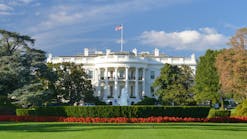Failure to extend biodiesel tax credit would impact economy severely: study
The National Biodiesel Board (NBB) released a study conducted by economic analyst John M Urbanchuk. This study examined the economic impact of the biodiesel industry and the negative consequences of allowing the federal biodiesel tax credit to lapse. The biodiesel tax incentive is currently set to expire December 31, 2009.
“Since it was enacted in 2004, the biodiesel tax incentive has allowed the nation to reap the economic, energy security, and environmental benefits associated with commercial scale production and use of biodiesel,” said Manning Feraci, vice-president of federal affairs for the NBB. “Allowing the credit to lapse will compound the already daunting challenges facing the industry and will cost the nation another 23,000 jobs in addition to the 29,000 jobs that were shed in 2009.”
The biodiesel tax incentive is designed in a manner that makes biodiesel price-competitive with petroleum diesel fuel in the marketplace. This incentive is structured so its value is reflected in the market price of the fuel. Urbanchuk’s analysis concludes that without the biodiesel tax incentive, there will be: a major loss of jobs and income; increased demand for petroleum diesel; a degradation of energy security; decreased demand for soybean oil and lower soybean prices leading to a negative impact on farm income; stranded investment as biodiesel capacity is idled; and lost tax revenue for states and local governments.








